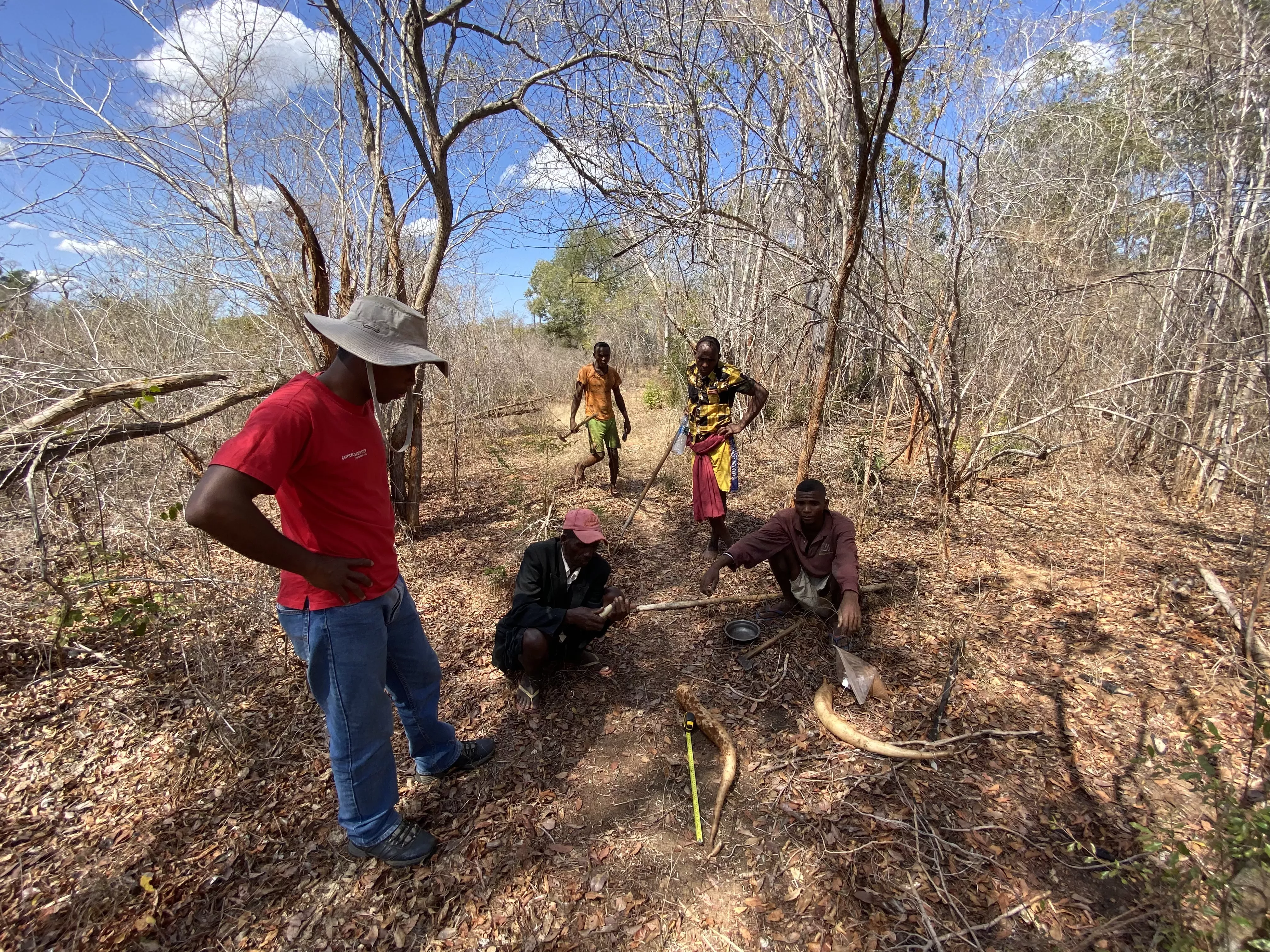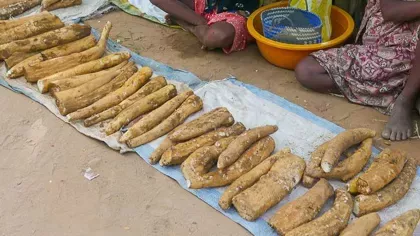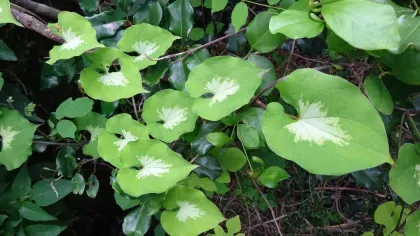Belowground Futures: Aridity tolerance of wild edible yams in Western Madagascar
This project researches the tolerance of wild edible yams to drier climates and helps to enhance food security in rural communities of Western Madagascar.

Wild harvested yams are an important food source for many Malagasy people, especially for rural communities during the dry season which is commonly called the 'hungry season'.
Many drier regions in Madagascar have already had to switch from staple rice cultivation to belowground crops such as sweet potato and cassava in response to recent warming and drought events. Plus, drier times promote earlier and increasing dependence on wild harvested yams as a supplementary food source.
Currently, cultivation of yams in Western Madagascar is not prevalent but an opportunity exists to take advantage of the natural adaptation of yams to drier conditions by cultivating domesticated and wild species.
We also need to investigate the limits to this natural adaptation and understand how the quality and quantity of this food source (e.g. nutrients and yield) may change under predicted climate change.
Our project is thus two-fold:
1. Yam cultivation training
Based on Kew’s work in this area, we aim to build local capacity to enhance food security under climate change in rural communities of Western Madagascar.
This involves conducting yam cultivation training in three rural communities (approximately 50 households per community) in collaboration with Madagasikara Voakajy (a Malagasy biodiversity organisation).
This training entails: a) cultivation of both domesticated and wild yam species and b) teaching techniques to improve sustainable wild-harvesting practices.
The potential impact of this work is to improve the accessibility and stability of food sources for communities during drier times as well as reducing pressure on wild yam populations.
2. Investigating the aridity tolerance of yams
Using trait-based approaches, our project aims to quantify how wild edible yams in Western Madagascar vary in terms of their tuber yield and nutritional traits along natural aridity gradients.
This research uses multiple methods including field data collection, nutritional analyses and species distribution modelling.
The potential impact of this project is knowledge generated on how yams, as important food resources, may change under drier conditions.
Further work includes the integration of what we learn from the trait-based analyses, i.e. identifying which species may be more resilient in terms of food quality (nutrition) and quantity (yield), into future cultivation training and thus feeding back to communities the results of this analysis.

Nicola Kühn — Principal Investigator (PI)
Mamy Tiana Rajaonah — Co-Principal Investigator
Paul Wilkin — Co-Principal Investigator
Fenonirina Rakotoarison — Researcher
2021 Guardian Observer Charity Appeal

